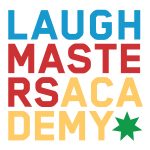Apply the Concepts of Improv to Your Daily Life
We’re excited to see (hear?) out good friend in New York, and Founder of Magnet Theater, Ed Herbstman on this lovely podcast.
This week on The Upgrade we’re going off-script and talking about improvisational comedy. Even if you don’t think of yourself as a comedic or theatrical person there are a lot of lessons you can take away from the improv stage.
How to Listen to This Episode:
- Subscribe on iTunes.
- Subscribe on Google Play.
- Listen on Spotify, iHeartRadio, or Stitcher
This Week’s Discussion: How You Can Apply the Concepts of Improv to Your Daily Life
Even if you’re not a comedy nerd like me, chances are you have some awareness of improv. A typical improv show features a group of performers acting out skits based on suggestions from the audience. Depending on the form, a good improv skit takes a small detail and builds it into an entire scene with fleshed out relationships and characters. It’s a very tricky thing to do that requires a few key skills that you can apply to your own life and work.
To learn a little about the fundamentals of improv we spoke with Ed Herbstman, co-founder of the Magnet Theater in New York and Hannah Chase, an improv teacher and performer. In addition to teaching classes at the theater they are occasionally are hired by companies to impart how improv concepts can help in professional settings.
For example, you may have heard of the concept of “yes, and…” All that means is that you should avoid saying no as much as possible. We tend to approach everything from a skeptical point of view and think about new ideas in terms of how they might fail. That doesn’t really work in improv. Rather, you should try to say yes and add to ideas instead of shutting them down immediately or bulldozing something with an idea of your own.
And another key parts of improv is what’s called “active listening.” It sounds obvious—of course you need to listen to someone in order to respond to them—but most of us just sort of half-listen in normal conversations or just say whatever’s on our mind without any regard to the person we’re talking to. On stage active listening is crucial; improvising a scene depends on your awareness of your partner’s intentions, and everything you say and do should be a reaction to them rather than a non sequitur. But the same thing applies to real life. Take time in your relationships to actually listen to what the other person is saying. At work don’t zone out at meetings; pay attention and see how you can contribute.
Those are just a couple improv principles that Ed and Hannah taught us. And stick around until the end of the show to hear Hannah and Ed perform a hilarious skit spun from thin air.
Via: Lifehacker
